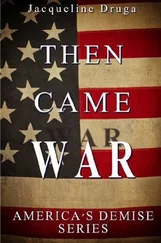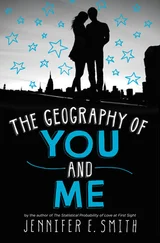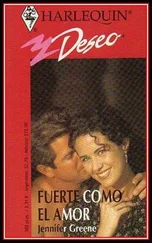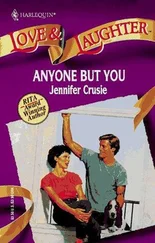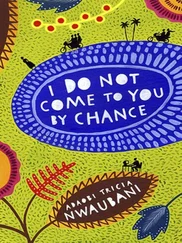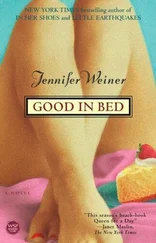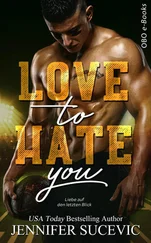9. Consider the different family structures portrayed in the book. What do you think Then Came You is saying about families?
10. Annie worries that Frank will feel he isn’t providing sufficiently for his family, if she decides to become a surrogate so that she can contribute to the family income. She also notices that Frank is more likely to lose his temper around bill-paying time. Do you empathize with Frank here?
11. If you were to use a surrogate and/or a donor egg to have a child, would you want either of these women to be involved in your life after the child was born? Why or why not?
12. Weiner is masterful at describing physical settings. Locate some instances where an interior is described, and discuss what you learn about the people that inhabit that space from this description.
13. Did your opinion of India change as the novel progressed? If so, what caused this shift?
14. At their first meeting, Kate Klein says to Bettina, “I always tell my clients to be careful what they wish for.” Do you think Bettina made the right decision in choosing not to tell her father what she had learned of India’s past?
15. Perception is an important, but often subtle theme of Then Came You. Discuss how each of the main characters wrestles with the way they are publicly perceived. In what ways do they each strive to control their image?
Enhance Your Book Club
1. Imagine that you are searching for a donor egg, and consider what you would look for in an ideal candidate. Would they share many of the qualities or attributes you recognize in yourself, or would you want them to possess others? You might also write down these characteristics (be as specific as possible) and share them as a group. Are there common qualities that you would all desire from a donor?2. Pretend that you are a casting director and that Then Came You is your latest project. Who would you cast to portray Annie, Jules, India, and Bettina? What about Frank, Kimmie, Darren, and Marcus?3. Before meeting with your group, read “Meet the Twiblings” by Melanie Thernstrom, a feature that ran in the New York Times Sunday Magazine. Discuss how the issues that Ms. Thernstrom grapples with are handled within Then Came You .4. In the final scene of Then Came You we hear “the mythology of Rory’s essential beginnings.” Think about the kind of narrative that you were told to you as a child about your “beginnings”—and if you’re a parent, consider the narratives that you’ve crafted to tell your child. Share these with the group.
A Conversation with Jennifer Weiner
You’ve said before that each of your books has begun with a mental snapshot, a clear visual in your mind. Was that the case with Then Came You , and if so, what was that image? In general, what drew you to the topics of surrogacy and egg donation?
A few years back, the New York Times ran a story by a woman who was unable to carry a pregnancy and eventually hired a surrogate in Pennsylvania to carry a child for her. The infertile woman was married to an older man with adult children. The two of them were very well-off, and the story didn’t stint on the details of her wealth (I remember references to white-water rafting, bourbon tastings, and trips to the SuperBowl) while the surrogate was a woman of much more modest means, whose college degree and computer proficiency were met with condescending surprise.
The story was rich with subtext — about class, about cash, about the way you can get pretty much whatever you want in the world if you’ve got the money to pay for it — but it was the pictures that stayed with me. There was a shot of the new mother, standing in front of her estate in the Hamptons, with a uniformed black maid behind her, holding the baby, like a prize, in her arms…and, a few pages later, a picture of the surrogate on the porch of a falling-down farmhouse by a river, literally barefoot and pregnant.
I had several thoughts at the time, including, “I wonder if the writer had any idea that these were the pictures that would run with the story,” and “Wow. Barefoot and pregnant. Srsly, NYT ?” And “have I really given dark spirits enough of a chance?”
But then I thought that there’s something unsettling about the notion of a rich lady paying a less-rich lady to carry her baby, the same way a rich lady might pay a less-rich lady to clean her house, or wax her legs, or do some other bit of grubby, less-glamorous business that the rich woman didn’t want to do herself. Does money belong in the equation when people think about how to build their families? If it’s a necessary evil; if pregnancy’s really just another service, with providers and consumers, how does that play out? All of these were questions that I wrestled with in Then Came You .
What kind of research did you do for Then Came You
I had read a lot about surrogacy for Certain Girls , so the research for this book involved reading a lot of first-person accounts from egg donors — what you go through physically, and what it feels like when the donation is complete.
Jules, India, Bettina, and Annie are such unique and distinctly defined women. As you were writing, did you find that you had a favorite character? Did you identify with one more than the others?
In this book more than any of my others, all of the characters delighted me, and all of them frustrated me. Which I think means that they’re fully realized. At least, I hope so!
The thing that I identified with most was the thing that ties the four of them together — the longing for what they don’t have; for what, in some cases, they can never have. Bettina and Jules both want their families back; India wants the promise of security, forever; Annie wants to race up the ladder of social status and be the giver instead of the taker. I think that’s universal, the desire for what you’ll never have, or had once and will never get again. Sad, but true.
In the past year, you wrote and co-produced a TV series, “State of Georgia,” which will air on ABC Family this summer. How has writing for television compared to writing a novel? Has it been difficult to go back and forth between the two mediums?
Television’s been refreshing because I have colleagues again. Turns out, I missed working with people, and being in a writers’ room is a lot of fun — you sit around with a bunch of like-minded people and make each other laugh all day long. So I like the camaraderie of television, but I also love the relative quiet of novels, where it’s just me and my thoughts and the characters, and there’s no network giving notes or saying, “Instead of casting the guy you wanted, how about this guy we like?” There’s a lot more independence with writing fiction, where you’re building a universe all by yourself…and then, of course, the excitement when you do get to work with people again — your editor, your publicist, the readers…
This is your first novel to feature a protagonist in a same sex romantic relationship. Did you know when you began writing that Jules and Kimmie would become more than friends?
I had no idea, and it really surprised me! I knew that Jules was a very closed-off, defensive, isolated character, and I knew that, in the course of the story, she’d become more open and more giving, and that the process would begin with her egg donation. I did not see Kimmie coming. Sometimes, you have to let your characters surprise you, and the two of them certainly did!
More so than your other novels, Then Came You tackles issues of class and money head on. Was this an inevitable consequence of writing about surrogacy and egg donation, or was this a deliberate decision?
Читать дальше

